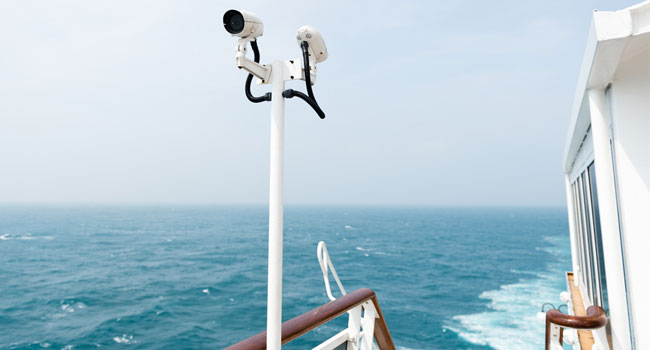
Industry Focus
Setting Sail
- By Ralph C. Jensen
- Feb 01, 2015
I haven’t really given any thought to taking a cruise.
I think it might be fun, and it certainly would be
something different than I’ve ever done before. I
also haven’t given much thought to the challenges of
maintaining security for thousands on a cruise ship.
At the airport, as you are well aware, there is a
certain structure in place to screen passengers. Like
me, you might not even give this a second thought any
longer. I love TSA PreScreening, which allows a person
to zip through security. Without giving this much
thought, I often wonder what TSA people find at the
checkpoints.
I was shocked.
During the week of Dec. 18, 2014, TSA agents
discovered 56 firearms. Of the 56 firearms found, 43
were loaded and 13 had rounds chambered. That’s
at airports nationwide. Airports do have fairly strict
screening procedures.
Security in the cruise ship industry remains relatively
soft, in comparison. This has changed in 2015.
The Coast Guard expects to increase screening requirements
for passengers and their baggage.
Demand for cruising worldwide nearly doubled
between 1999 and 2009, with the number of passengers
increasing to 16.93 million from 8.59 million. In
addition, vacationers are coming from an increasing
range of national, racial, ethnic and religious groups.
Cruise lines are also expanding their operations
to new, remote and potentially dangerous areas, such
as the Middle East, which experts say increases ships’
chances of dealing with foreign marine facilities
whose security practices are not up to par.
“The Coast Guard will be taking all necessary steps
for the security of passengers,” said Jared Bickenbach,
a market analyst for security and building technology
at HIS Inc. “There are massive amounts of people at
any given time, and there have been, in the past, movement
of extremists in the Mediterranean area of the
world. The bottom line is, there have only been five attacks
in the past 55 years, and this program will mostly
affect U.S. passengers and baggage.”
The most recent assault occurred in 2004 when
terrorists belonging to an Islamist separatist group
bombed the SuperFerry 14 in Manila Bay, Philippines.
The attack resulted in 116 deaths.
In the United States, the Coast Guard has announced
its plans to standardize passenger security
screening procedures at cruise ship terminals with the
creation of the Terminal Screening Program. There
are currently 137 regulated cruise ship terminals, operated
by 23 U.S. cruise companies. The proposed
regulations will not be mandatory, resulting in a projected
slow uptake over the short-term of new explosives,
weapons and contraband detection equipment
in the cruise ship industry.
Cruise ship terminals currently use a combination
of X-ray, people scanning, explosive detection systems,
canine teams and manual inspections. According to
an HIS published report, the explosives, weapons and
contraband detection equipment market is expected to
grow by 6.7 percent to $241.6 million in 2018.
According to the website for Cruise Lines International
Association Inc.—the world’s largest cruise
industry association—cruise passengers, crew and
baggage must pass through a security checkpoint before
embarking or disembarking. Additionally, crew
members must undergo pre-employment background
screening. But the website does not specify whether
screening methods vary by cruise line or not.
Larger cruise ship terminals prefer efficiency and
greater throughput by installing newer X-ray and
EDS equipment. Smaller ship terminals will likely be
slower in adopting EWC equipment, and will instead
use canine teams as well as manual inspections.
The Terminal Screening Program is expected to increase
its security presence by developing a standardized
list of prohibited items, develop training standards
to consolidate requirements for screeners, and
eliminate redundancies in cruise ship security regulations.
Don’t be surprised if there is a requirement to
screen all passenger, crew and visitors’ baggage and
personal items.
Terrorism threats to the cruising industry have
been minimal, especially compared to aviation, and
cruise ships are considered to be more resilient due
to the large number of passenger aboard each ship.
Industry analysts indicate that the cruising industry is
more resilient than the aviation sector, which will result
in the development of specific screening requirements
for the cruise ship industry. Because there is a
lower probability of a terrorist attack on a cruise ship,
there is an expectation that screening requirements
will be much less stringent at the terminals.
Terrorism is event driven. Cruise ship terminals, like
airports would have to act when and if an attack were
to occur. This would undoubtedly lead to increased
security screening regulations at cruise ship terminals.
Cruise ship companies tend to be more reactive
than proactive with security practices because they
don’t want to hurt business. Let’s hope there is enough
security intelligence given to the cruise ship industry
to maintain a safe, secure and orderly business.
This article originally appeared in the February 2015 issue of Security Today.